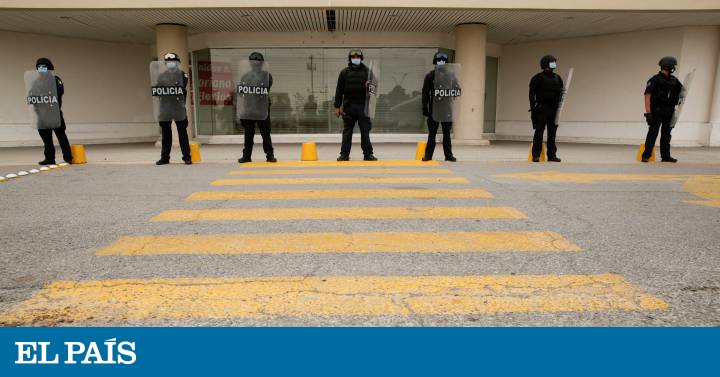To the pandemic of famine and poverty that is anticipated by the economic unemployment that we suffered, there is another equally devastating scourge: the increase that we can expect in crime. Particularly in countries like ours where crime levels are high, a good part of the workforce works in the informal sector and, therefore, lacks any type of labor protection.
From the coming-coming that in the absence of customers will start to steal auto parts, to the former member who with a toy gun will try to make a few pesos trying his luck against the passengers of a bus. I am not talking about organized crime, but rather about ant robbery in abandoned buildings, the assault on a house in search of anything that could be sold, the theft with the threat of violence to passers-by of wallets and cell phones.
Impossible to anticipate the magnitude it can reach, but it will not be less. Not only because many companies will reduce their staff or outright close, but also because informal jobs themselves will suffer the long recovery period and the decline in economic activity after confinement. Half of the population already worked in the informal sector, a gray area in which many trades and tasks, not all, usually operate within the folds of the rules and behind the authority's back. The crisis could push many of these people to deepen their illegality, to turn the clandestine screw one more time.
Beyond ethics or laws, extreme situations make human beings biology, so to speak. No one is going to stand idly by the impossibility of bringing something to their table. The levels of impunity for crime are so high that crime becomes a real option, even when desperate, to survive.
Calls to loot supermarkets and stores at specific times, through social networks, have apparently been stopped in a timely manner thanks to the fact that the authority was able to infiltrate the calls from the moment they were launched. But it was remarkable the way in which such calls were answered by people who, protected by anonymity, were willing to commit crimes, even when they did not consider themselves criminals. The sheepish source, inequality and necessity justify any act by which people consider that social justice is being done by their own hand.
During the fight against Huachicol last year, public opinion was able to observe the way in which entire communities participated in the storage, distribution and sale of stolen fuel from pipelines. Furthermore, we saw the real indignation that they showed by blocking the passage of patrols or tumultuously preventing the apprehension of the huachicoleros. They defended a way of life, but they also expressed a deep-seated feeling: "If the gas stations and Pemex officials steal, why are we, who are in greatest need, not going to do it?"
The other source of public insecurity to come is perhaps even more troubling. The economic crisis has forced the Government to take away attention and resources from the fight against organized crime. A fight that in itself we were already losing. The statistics of these last weeks make it clear that the hitmen have not felt any apprehension against the coronavirus. In other countries criminal activity declined as a result of social distancing; in Mexico, on the other hand, the number of those killed in recent weeks has reached historic levels. Everything indicates that organized gangs decided to take advantage of power vacuums to expand their territories in every way. The delivery of pantries to the population by the cartels in various cities of the country is another indicator of the degree to which some of these organizations begin to conceive of themselves as a parallel state. In Morelos, "El Señorón", regional capo, distributed bags of food with his name to three blocks from the governor's office, with the clear intention of showing who holds the true power in the entity.
In sum, to the uncertainty and anguish that the pandemic and its aftermath endows us, we must add the arbitrary and brutal threat of criminality.
Note: Last Wednesday, President Andrés Manuel López Obrador complained about the state of journalism in Mexico and mentioned by name three colleagues who attack him, followed by three others who defend him. Then, after a hesitation, "I could not say that from the left, but he is a good political analyst who gets more to understand what is happening and what we are, one who writes in EL PAÍS, Jorge Zepeda Patterson" · About it I would like to say that I am grateful and flattered by the president's opinion on my texts, but it would be much more convenient to never again have lists of good and bad journalists, because deep down they end up being as arbitrary as the lapidary labels that define a president as good or bad forever. We live in a complex world full of colors; we all lose when politicians and journalists only see black and white images.
You can follow EL PAÍS Opinion on Facebook, Twitter or subscribe here to the Newsletter.

